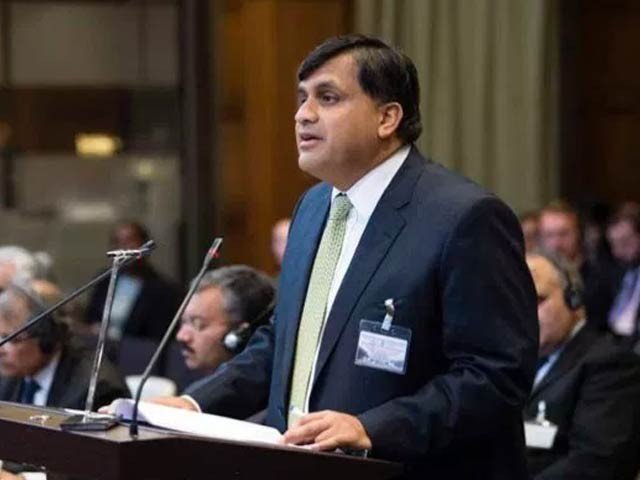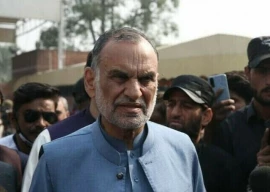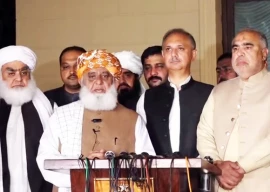
The statement from the Foreign Office spokesperson Dr Muhammad Faisal came just days after Pakistan submitted a counter-memorial before the ICJ at The Hague.
“The counter-memorial is a purely legal document containing comprehensive details regarding Commander Jadhav. It has a step-wise response to all Indian objections in the case,” Faisal told reporters at his weekly briefing.
“To date, India is unable or unwilling to provide answers to many key questions regarding Commander Kulbhushan Jadhav: a) Why has Commander Jadhav possessed a passport in the name of Hussein Mubarak Patel? If the passport was fake, how can he travel out of India 17 times, including from Mumbai and New Delhi? If it was real, how can he be in possession of a passport in a fake name? b) If he was retired, as per India’s claims, why did India fail to produce his retirement or pension papers?”
Kulbhushan Jadhav case: Pakistan files counter-memorial in ICJ
“Alhamdulillah, our case against India, regarding Commander Kulbhushan Jadhav, at the ICJ is very strong,” he added.
The spokesperson said Jadhav was caught red-handed on the Pakistani soil, being involved in espionage, subversive and terrorist activities.
“Since we had nothing to hide, and as part of a humanitarian gesture, the Foreign Office arranged the meeting between Commander Jadhav and his mother and wife, at the Ministry of Foreign Affairs on December 25, 2017. We have dealt with the case in a transparent manner.”
Replying to a question about the reports of opening of office of ‘Free Baluchistan’ in New Delhi, Faisal said he had seen the reports but needed to ascertain the facts.
“However, Indian interference in Pakistan is an established fact. Indian statements threatening the territorial integrity of Pakistan are on record, indicating their hegemonic designs. Inauguration of such an office is reflective of India’s nefarious designs against Pakistan,” he maintained.
He said Pakistan is fully equipped to defend itself against such nefarious designs. “India needs to act as a responsible member of the international community and desist from such actions.”
Regarding the recent Ulema Conference in Saudi Arabia on Afghanistan, the spokesperson clarified that the Makkah Declaration did not declare anyone as terrorists.
“It rather focuses on condemnation of terrorism and killings of Muslims, declaring them Haram as per the Holy Scriptures. It calls on Muslim states to play their role for peace in Afghanistan. It also persuades all parties involved in the conflict to abide by Allah’s injunctions to end the conflict and resort to reconciliation among brothers,” Faisal explained.
India submits reply to ICJ in Jadhav case
On the questions regarding civilian deaths in Afghanistan, he said Pakistan’s position on the futility of the kinetic approach in Afghanistan was very clear.
“We have been consistently saying that the pursuit of a military-led approach in the past 17 years has failed and it has only added to the suffering and miseries of the Afghan people.”
“In our view, the afflictions and agony of the Afghan people can only be addressed through a major shift in policy and renouncing violence by all sides and pursuing political settlement to the conflict,” he said.
He would not comment on the reports that the US had recently authorised its diplomats to hold direct negotiations with the Afghan Taliban.
1730793476-0/bella-(1)1730793476-0-405x300.webp)

1723119450-0/jlo-ben-(6)1723119450-0-165x106.webp)

1730270970-0/BeFunky-collage-(84)1730270970-0-165x106.webp)



1730786905-0/£300,000-(1)1730786905-0.png)






1730706072-0/Copy-of-Untitled-(2)1730706072-0-270x192.webp)
COMMENTS
Comments are moderated and generally will be posted if they are on-topic and not abusive.
For more information, please see our Comments FAQ